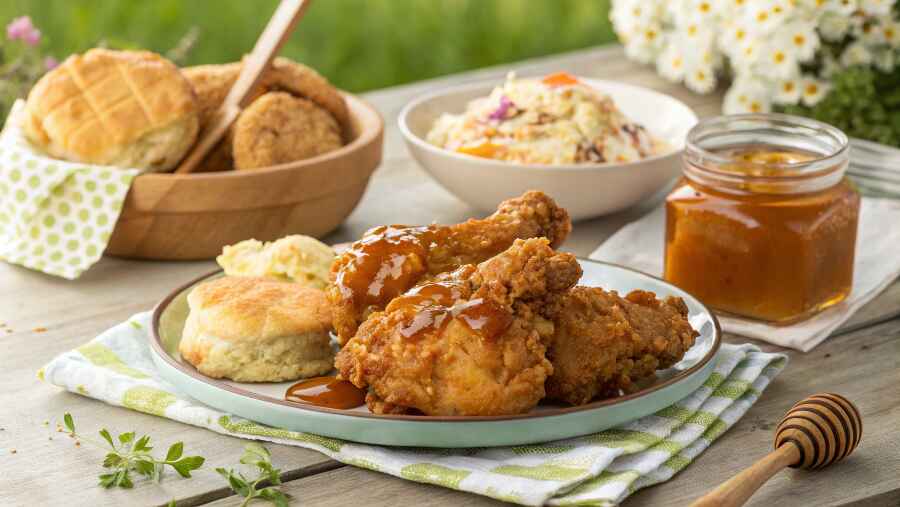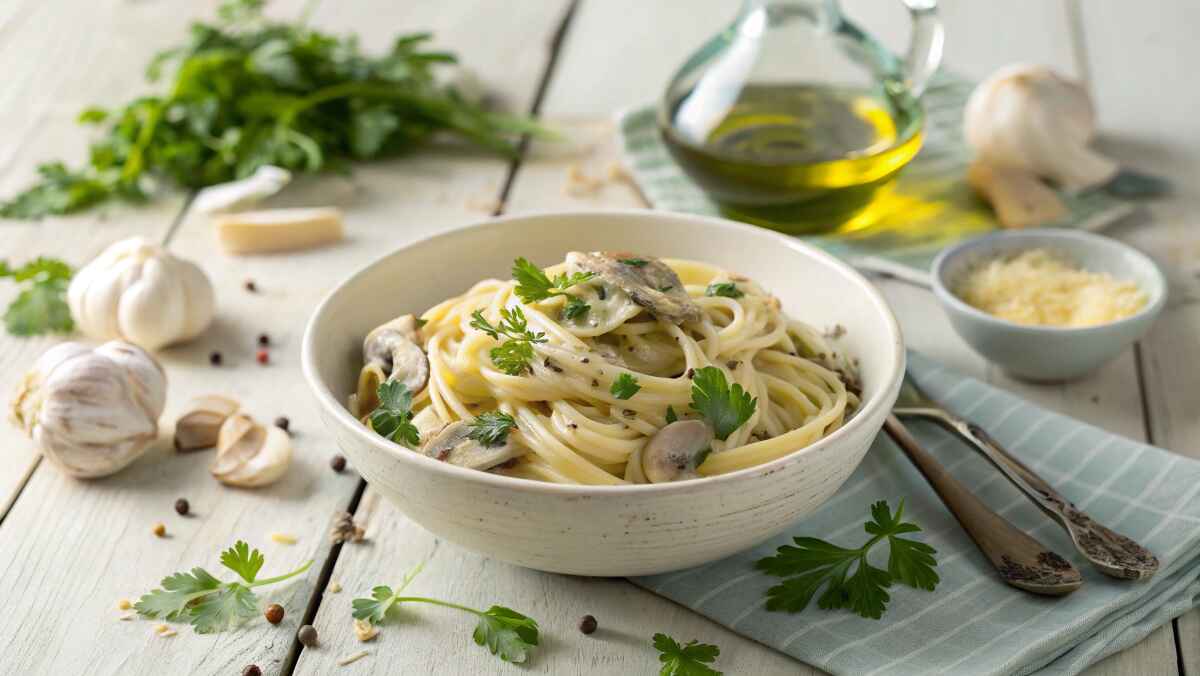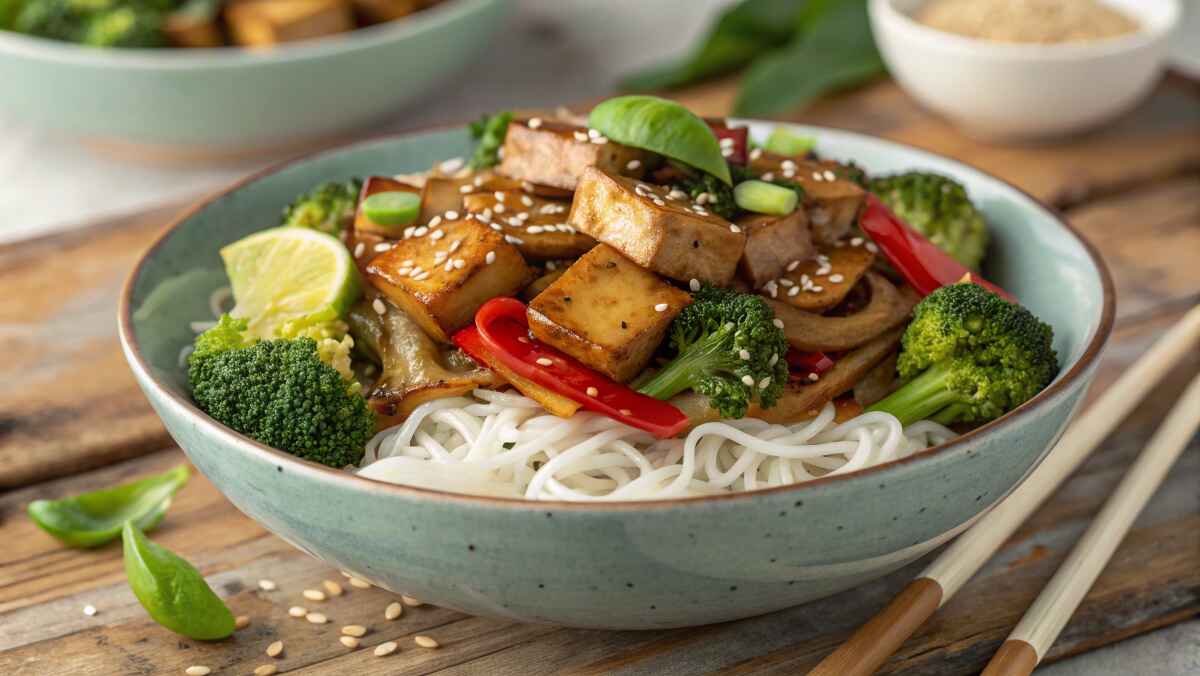Nutritional Breakdown
Mashed Potatoes
Mashed potatoes are a comforting and versatile dish that can be part of a healthy diet when prepared correctly. Potatoes, the primary ingredient, are a nutrient-rich food that provides several health benefits:
Key Nutritional Benefits
- Carbohydrates: Potatoes are an excellent source of carbohydrates, which serve as your body’s primary energy source. These carbs are especially helpful for individuals with active lifestyles or those needing a quick energy boost. However, consuming them in moderation is essential for maintaining balanced blood sugar levels.
- Potassium: A medium-sized potato contains about 620 mg of potassium, an essential mineral that helps regulate blood pressure, maintain proper hydration, and support muscle function. Potassium also plays a critical role in reducing the risk of heart disease by balancing sodium levels in the body.
- Vitamin C: Potatoes are surprisingly rich in vitamin C, providing nearly 30% of the daily recommended intake. Vitamin C is a powerful antioxidant that strengthens the immune system, promotes healthy skin by supporting collagen production, and aids in iron absorption.
- Dietary Fiber: If you leave the skins on, potatoes become a good source of fiber. Fiber supports digestive health, helps control cholesterol levels, and keeps you feeling full for longer.
Common Preparation Pitfalls
Mashed potatoes can lose their health benefits when high-fat ingredients like butter, cream, or cheese are added. These ingredients increase the saturated fat and calorie content, making the dish less heart-healthy. For example, a cup of mashed potatoes made with whole milk and butter can double in calories compared to a plain potato.
Healthier Preparation Tips
- Use olive oil or low-fat yogurt as substitutes for butter to create a creamy texture while reducing saturated fat.
- Replace heavy cream with unsweetened almond milk or low-fat milk to cut calories.
- For added flavor, incorporate fresh herbs like rosemary, garlic, or chives instead of salt.
- Experiment with substitutes like mashed cauliflower or sweet potatoes for a lower-carb or more nutrient-dense option.
When Are Mashed Potatoes Ideal?
Mashed potatoes work well as part of a balanced meal, especially when paired with protein and fiber-rich vegetables. For instance, serving them with chicken and steamed broccoli creates a plate that offers energy, protein, and vital nutrients while avoiding an overload of calories.
Chicken
Chicken is one of the most popular protein sources worldwide, known for its versatility and impressive nutrient profile. It can easily fit into various dietary plans, from weight-loss programs to muscle-building diets.
Key Nutritional Benefits
- Protein: Chicken provides high-quality protein, which is crucial for repairing tissues, building muscles, and maintaining strong hair, skin, and nails. A 3-ounce serving of chicken breast offers about 26 grams of protein, making it a powerful addition to any meal.
- Low Fat: Skinless chicken breast is incredibly lean, containing minimal fat compared to other animal protein sources. This makes it an excellent choice for those monitoring their fat intake or focusing on heart health.
- B Vitamins: Chicken is rich in B vitamins, particularly niacin (B3) and vitamin B6. These vitamins play a critical role in energy metabolism, brain health, and the production of red blood cells. Niacin also supports healthy skin and digestion.
- Minerals: Chicken contains phosphorus and selenium, which contribute to strong bones, healthy teeth, and robust immune function.
Healthy Cooking Methods
The way you prepare chicken has a significant impact on its nutritional value. Here are some tips:
- Grilling: Grilling chicken without added oils retains its lean profile and enhances its natural flavors.
- Baking or Roasting: Baking chicken with herbs and olive oil ensures a juicy, flavorful meal without the need for unhealthy fats.
- Steaming: Steamed chicken is light and easy to digest, making it an excellent option for those with dietary restrictions.
Avoid frying chicken or using heavy breading, as these methods add unnecessary fats and calories. Fried chicken can double the calorie content of a serving compared to grilled or roasted chicken.
Flavorful Additions
Instead of relying on calorie-heavy sauces, try seasoning chicken with:
- Lemon and herbs like thyme or oregano.
- Garlic, ginger, or paprika for a bold flavor.
- A light marinade made with olive oil, vinegar, and fresh spices.
Pairing Suggestion:
To create a balanced and delicious meal, pair mashed potatoes with lean chicken and a side of vegetables like sautéed spinach or steamed green beans. For more inspiration, explore the Top Sides for Chicken, Noodles, and Mashed Potatoes.
Health Benefits
Mashed Potatoes
Mashed potatoes offer these key benefits:
- High in Potassium: Helps balance fluids and supports heart health.
- Easily Digestible: Their soft texture is gentle on the stomach.
- Fiber: Keeping the skins on provides dietary fiber, aiding digestion and heart health.
Chicken
Chicken provides several advantages:
- Complete Protein: Contains all essential amino acids for muscle growth.
- Satiating: Helps you feel full, which can reduce overeating.
- Versatile: Works in many recipes, making it easy to include in a balanced diet.
Explore creative meal ideas like this Chicken Caesar Salad Recipe for inspiration.
Health Risks and Considerations
Mashed Potatoes
Despite their benefits, mashed potatoes can be unhealthy if not prepared mindfully:
- High Glycemic Index: Causes blood sugar spikes, especially when eaten alone.
- Added Fats: Butter, cream, or cheese significantly increase calorie content.
Chicken
Chicken has its risks, too:
- Unhealthy Cooking Methods: Frying or using heavy sauces can add unhealthy fats and calories.
- Processed Chicken: Pre-marinated or frozen chicken products may contain added sodium or sugars.
Healthy Preparation Tips
- Mashed Potatoes: Swap butter for olive oil or low-fat yogurt. You can also try mashed cauliflower as a low-carb alternative.
- Chicken: Use herbs and spices for flavor instead of heavy sauces. Grill, bake, or steam chicken to keep it lean.
Discover more healthy ideas in this Chicken and Mashed Potatoes Recipe.
FAQs
1. Is this meal good for weight loss?
Yes, if you use lean chicken and prepare mashed potatoes with minimal fats, this meal can fit into a calorie-controlled diet.
2. What are healthier alternatives to mashed potatoes?
Mashed sweet potatoes or cauliflower provide fewer carbs and more nutrients like vitamin A and fiber.
3. Can mashed potatoes and chicken be part of a heart-healthy diet?
Absolutely, as long as you avoid added salt and fats. Use fresh, simple ingredients and healthy cooking methods.
Final Thoughts: A Healthy and Satisfying Chicken and Mashed Potatoes Meal
Mashed potatoes and chicken make for a comforting, delicious, and well-balanced meal, but with the right approach, they can also be a nutritious choice that aligns with your health goals. By selecting lean cuts of chicken and using healthier ingredients in your mashed potatoes, you can create a dish that is both flavorful and nourishing.
1. Choosing the Right Chicken for a Healthier Meal
Not all chicken preparations are equal when it comes to nutrition. To keep your meal lean and protein-packed, opt for:
✅ Skinless chicken breasts – Low in fat and high in protein, making it a great option for those watching their calorie intake.
✅ Chicken thighs (skinless and trimmed) – More flavorful than breasts but still a good source of protein with moderate fat.
✅ Grilled, baked, or air-fried preparation – These methods retain moisture while avoiding the excess oils and fats from deep frying.
✅ Marinating with herbs and citrus – Instead of heavy sauces, use ingredients like lemon juice, garlic, and fresh herbs to enhance flavor without extra calories.
2. Making Healthier Mashed Potatoes
Traditional mashed potatoes often contain large amounts of butter and cream, but with a few swaps, you can maintain the creamy texture while reducing excess fats and calories. Here’s how:
✅ Use Greek yogurt instead of sour cream – Adds creaminess and tanginess while increasing protein content.
✅ Swap heavy cream for low-fat milk or unsweetened almond milk – This keeps the mash light while still smooth.
✅ Incorporate olive oil instead of butter – Provides heart-healthy fats without compromising taste.
✅ Leave the skins on for extra fiber – Potato skins are packed with nutrients and help improve digestion.
✅ Season with herbs and garlic – Skip excess salt by using fresh rosemary, thyme, garlic, or even a pinch of smoked paprika for depth of flavor.
3. Creating a Balanced Plate
Pairing mashed potatoes and chicken with nutrient-dense sides ensures a well-rounded meal that provides essential vitamins and minerals. Consider adding:
🥦 Steamed or roasted vegetables – Broccoli, carrots, or Brussels sprouts add fiber and antioxidants.
🥗 A fresh salad – Mixed greens with a light vinaigrette can add crunch and freshness.
🍋 Citrus or vinegar-based dressings – These brighten the dish and help balance richer flavors.
4. Why This Meal Supports Your Health Goals
✅ Balanced Macronutrients – The protein from chicken, complex carbs from potatoes, and fiber from vegetables create a meal that keeps you full and energized.
✅ Rich in Essential Nutrients – Potatoes provide potassium and vitamin C, while chicken offers lean protein and B vitamins for muscle maintenance and overall wellness.
✅ Customizable for Dietary Needs – Whether you’re aiming for low-carb, high-protein, or heart-healthy eating, simple ingredient swaps can tailor this meal to your specific goals.
Enjoy a Healthy, Flavorful Meal Without Compromise
By making smart choices in cooking methods, ingredient swaps, and portion sizes, mashed potatoes and chicken can be both delicious and nutritious. Whether you’re looking for comfort food without the guilt or a balanced meal for everyday health, this combination remains a versatile and satisfying option.
Now, grab your favorite seasonings, roast some lean chicken, whip up a healthy batch of mashed potatoes, and enjoy a meal that’s as good for you as it is delicious! 🍗🥔✨
For more creative potato recipes, check out Potato Mille-Feuille Recipe. Enjoy your meal with confidence, knowing it’s both delicious and good for you!




